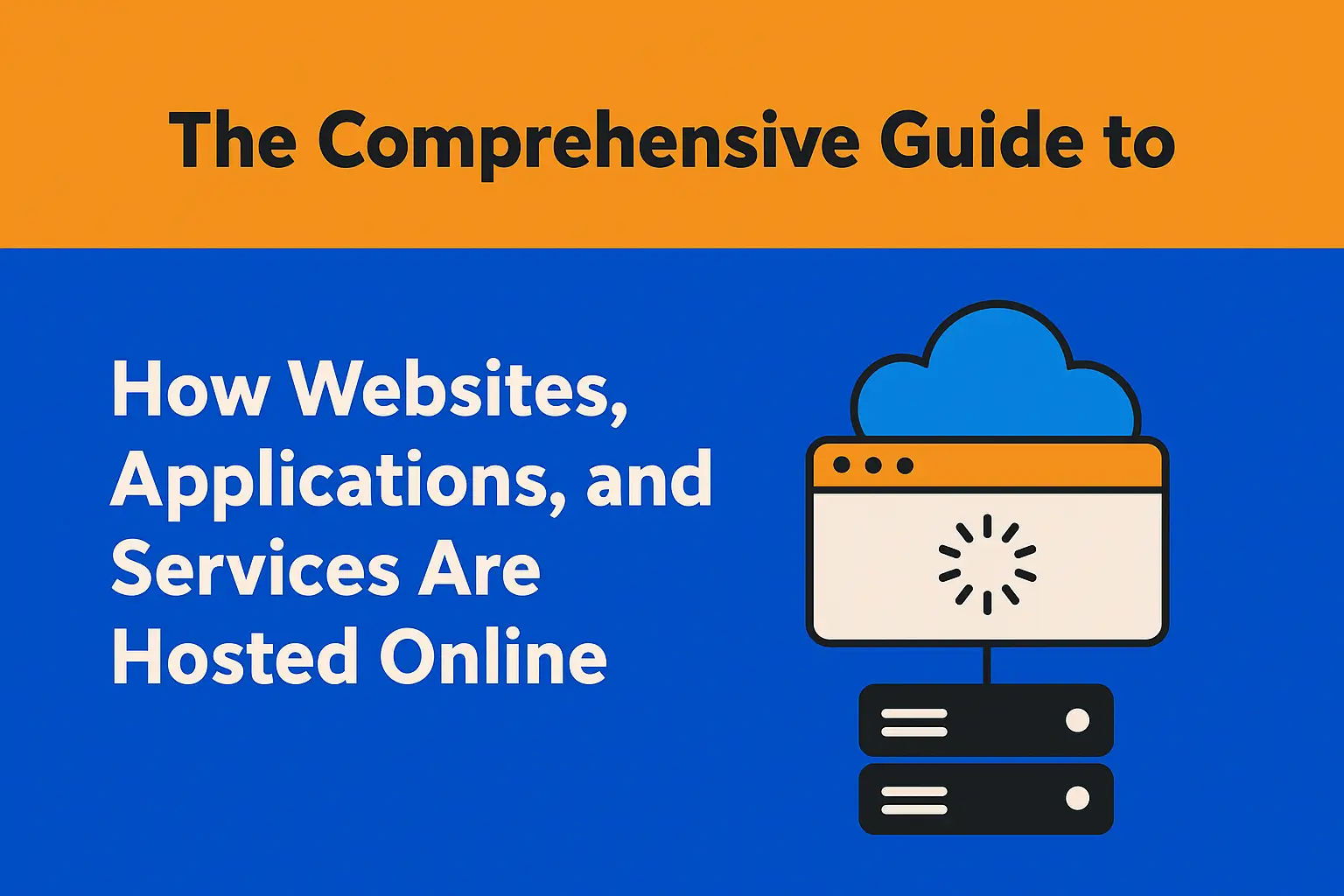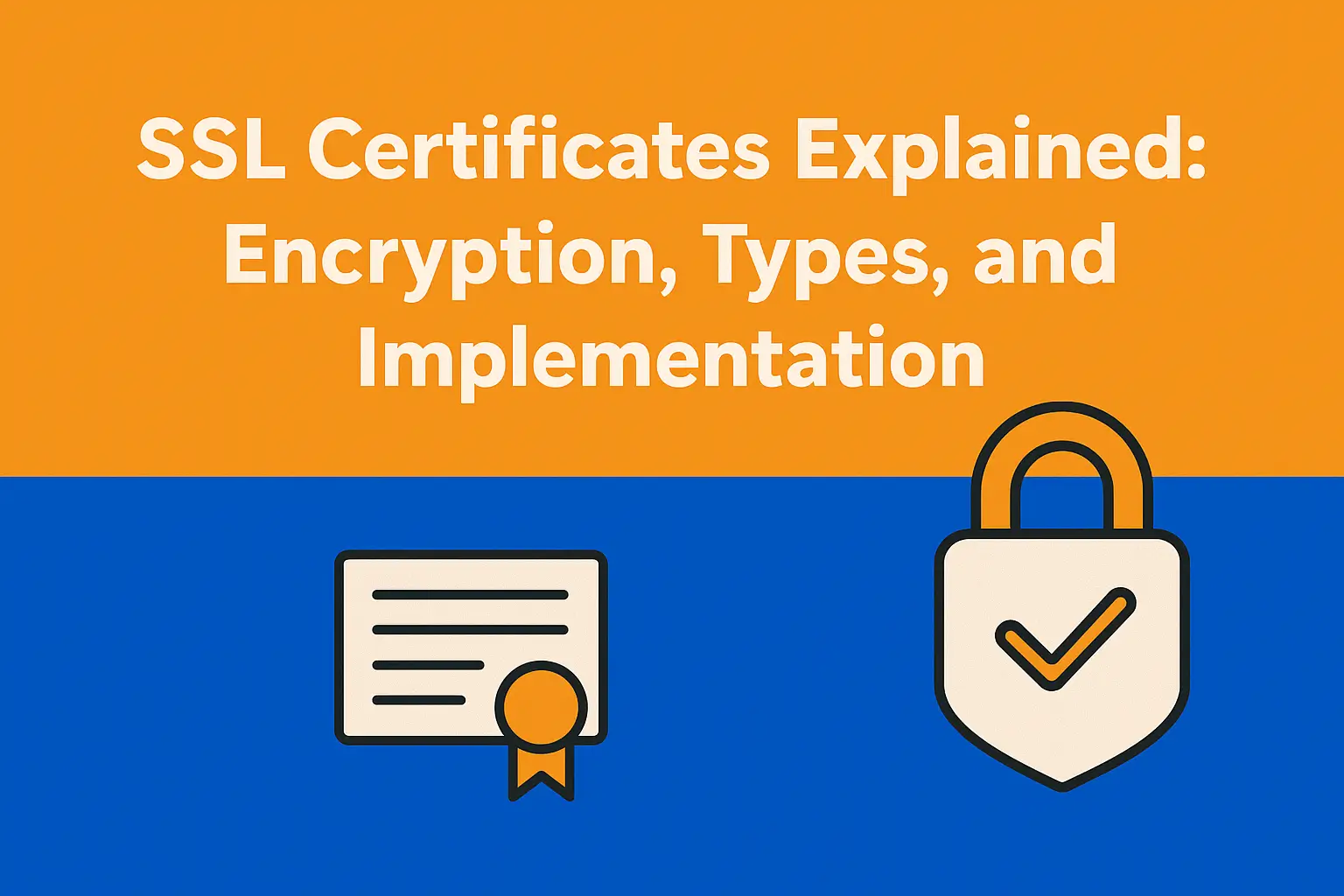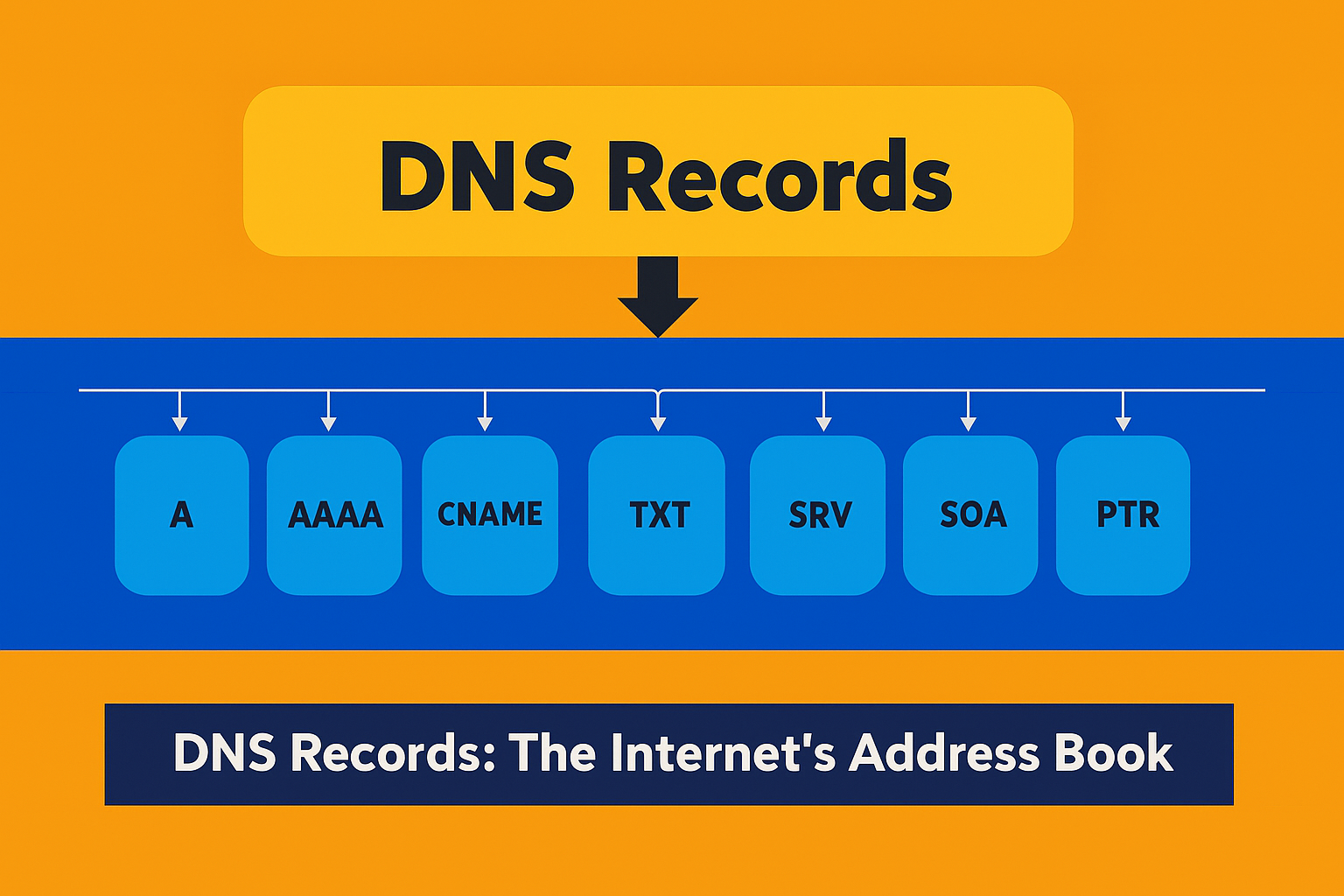The Comprehensive Guide to How Websites, Applications, and Services Are Hosted Online
Web hosting serves as the foundation of every website, application, and online service on the internet—a service that allows individuals and organizations to make their digital properties accessible online. When you create a website or application, all its files, data, and content need to be stored on powerful computers called servers that remain connected to the internet 24/7. Web hosting companies provide the technology, infrastructure, and maintenance required to keep these servers running efficiently, ensuring your online presence is available to visitors around the clock. Understanding web hosting is crucial for anyone looking to establish an online presence, whether for personal blogging, business websites, e-commerce stores, gaming servers, AI workflows, or complex web applications.
The right web hosting solution affects everything from your website’s loading speed and availability to its security and ability to handle traffic spikes. With approximately 4.9 billion internet users worldwide as of 2023, your choice of web hosting directly impacts whether these potential visitors can access your content quickly and reliably. Beyond mere accessibility, web hosting influences your website’s search engine rankings, user experience, and ultimately, your online success. Google has explicitly stated that page speed is a ranking factor, making your hosting choice an SEO consideration as well.
Why Web Hosting Matters
Think of web hosting as the digital real estate where your website lives. Just as a physical store needs a reliable location with good infrastructure, your website needs hosting that provides:
- Continuous accessibility (uptime)
- Adequate space for all your files and content
- Protection against cyber threats
- Resources to handle your visitor traffic
- Technical support when issues arise
- Specialized environments for specific applications
Without professional web hosting, your website and online services would be inaccessible to most internet users, limiting your reach and potential impact. This guide will explain the different types of web hosting, key features to consider, specialized hosting options, and how to choose the right hosting solution for your specific needs.
Types of Web Hosting Services
Shared Hosting: The Budget-Friendly Starter Option
Shared hosting is the most popular and economical hosting solution where multiple websites share resources on a single server. This cost-effective option is ideal for beginners, small websites, and blogs with moderate traffic. Since server resources (CPU, RAM, storage) are distributed among all accounts on the server, hosting providers can offer shared hosting at very affordable prices, often starting at just $2-10 per month.
Key Characteristics of Shared Hosting:
- Cost-Effective: Lowest pricing due to resource sharing among multiple users
- Ease of Use: Typically includes user-friendly control panels like cPanel or Plesk
- Maintenance-Free: Server management and maintenance handled by the hosting provider
- Pre-Configured Environment: Usually comes with pre-installed software and scripts
- Resource Limitations: Limited resources that can be affected by other sites on the same server
Best For: Beginners, small business websites, personal blogs, and sites with low to moderate traffic that don’t require extensive server resources.
VPS Hosting: The Balanced Middle Ground
Virtual Private Server (VPS) hosting provides a middle ground between shared and dedicated hosting. While multiple websites still reside on a single physical server, each website is hosted within its own isolated virtual environment with dedicated resources. This means you get more consistent performance than shared hosting since your allocated resources aren’t affected by other users on the same physical machine.
Key Characteristics of VPS Hosting:
- Dedicated Resources: Guaranteed allocation of CPU, RAM, and storage
- Greater Control: Root access allows for custom server configurations
- Enhanced Performance: More consistent performance than shared hosting
- Scalability: Easier to upgrade resources as your website grows
- Isolated Environment: Other sites on the physical server have minimal impact on your performance
Best For: Growing websites, medium-sized businesses, e-commerce sites, and developers who need more control and resources than shared hosting provides.
Dedicated Hosting: The Ultimate Performance Solution
Dedicated hosting provides an entire physical server exclusively for your website or applications. This offering the highest level of performance, control, and security available. With a dedicated server, you don’t share any resources with other websites, ensuring consistent performance even during traffic spikes. You have complete control over server configuration, security protocols, and software installations.
Key Characteristics of Dedicated Hosting:
- Exclusive Resource Use: Entire server resources dedicated to your website
- Full Control: Complete root access and server customization capabilities
- Enhanced Security: Isolated environment reduces vulnerability to other sites’ issues
- High Performance: Maximum processing power and faster loading times
- Flexible Configuration: Ability to tailor hardware and software to specific needs
Best For: Large businesses, high-traffic websites, resource-intensive applications, and organizations with specific security or compliance requirements.
Cloud Hosting: The Scalable Modern Solution
Cloud hosting utilizes a network of interconnected virtual servers that pull resources from underlying physical servers. This distributed approach offers exceptional reliability and scalability, as your website can instantly access additional resources during traffic spikes and scale down during quieter periods. If one server experiences issues, another can seamlessly take over, minimizing downtime.
Key Characteristics of Cloud Hosting:
- High Reliability: Distributed across multiple servers for reduced downtime
- Scalability: Easy to scale resources up or down based on demand
- Pay-as-You-Go Pricing: Often billed based on actual resource consumption
- Advanced Technology: Typically incorporates latest hosting technologies
- Resource Flexibility: Can handle unexpected traffic spikes effectively
Best For: Businesses with fluctuating traffic, growing companies, e-commerce sites, and applications requiring high availability.
Specialized Hosting Solutions
WordPress Hosting: The Specialized Content Solution
WordPress hosting is specifically optimized for the WordPress content management system. It comes in two main forms: managed and unmanaged. Managed WordPress hosting includes automatic updates, enhanced security specifically for WordPress vulnerabilities, and expert WordPress support. Unmanaged WordPress hosting provides a standard environment pre-configured for WordPress but without the specialized maintenance and support.
Key Characteristics of WordPress Hosting:
- WordPress-Optimized: Server configuration tailored for WordPress performance
- Automatic Updates: Often includes automatic WordPress, theme, and plugin updates
- Enhanced Security: Specialized security measures for WordPress-specific threats
- Expert Support: Technical support staff trained in WordPress issues
- Pre-Installed Tools: Often includes staging environments and WordPress-specific caching
- Included Features: Typically includes free domain, SSL certificate, and pre-installed WordPress
Best For: WordPress websites of all sizes, from blogs to enterprise sites, especially those who want to minimize technical maintenance.
Managed WooCommerce Hosting: E-Commerce Optimized Solution
Managed WooCommerce hosting is specifically designed for online stores built with the WooCommerce plugin for WordPress. This specialized hosting includes features tailored for e-commerce performance, security, and scalability.
Key Characteristics of Managed WooCommerce Hosting:
- WooCommerce Optimization: Pre-configured for optimal e-commerce performance
- Included Extensions: Often includes premium WooCommerce extensions worth thousands of dollars
- E-commerce Features: Enhanced security for transactions, PCI compliance, and payment gateway integrations
- Scalability: Handles traffic spikes during sales and promotions
- Staging Environments: Safe testing environments for store updates and changes
- Performance Enhancements: Specialized caching for product pages and checkout processes
Best For: Online stores of all sizes, from small businesses to large e-commerce operations using WooCommerce.
Game Server Hosting: High-Performance Gaming Environments
Game server hosting provides specialized environments for hosting multiplayer game servers. These hosting solutions are optimized for low latency, high performance, and game-specific requirements.
Key Characteristics of Game Server Hosting:
- Game-Optimized Hardware: High-frequency CPUs and fast storage for game server requirements
- Low Latency Networks: Optimized networks for real-time gameplay
- Game Control Panels: Specialized interfaces for managing game servers easily
- DDOS Protection: Enhanced security to prevent game server attacks
- Mod Support: Environments that support game modifications and custom content
- Multiple Location Options: Data centers worldwide for optimal player connectivity
Example: Hostinger’s Game Panel makes it easy to host and manage game servers for various popular games. With a simple setup process and an intuitive interface, you can create game instances, configure settings, and monitor performance .
Best For: Gamers, gaming communities, and game developers looking to host private or public game servers.
AI Agent Hosting: Specialized Environments for AI Workflows
AI agent hosting provides environments specifically designed for artificial intelligence applications, machine learning workflows, and AI-powered automation.
Key Characteristics of AI Agent Hosting:
- GPU Acceleration: Access to GPU resources for machine learning tasks
- AI Framework Support: Pre-configured environments for popular AI frameworks
- Scalable Compute: Ability to scale resources for intensive AI processing
- Integration Capabilities: Easy integration with AI APIs and services
- Container-Based: Often uses containerization for reproducible AI environments
Example: Cloud Run provides a fully managed environment for AI application workloads, integrating with AI models like Gemini API, Vertex AI endpoints, or models hosted on GPU-enabled services .
Best For: Developers, data scientists, and businesses implementing AI applications, machine learning models, and automated AI workflows.
Self-Hosted n8n: No-Code AI Workflow Automation
Self-hosted n8n provides a platform for creating automated workflows and AI agents without extensive coding knowledge. This solution allows you to host the automation platform on your own infrastructure.
Key Characteristics of Self-Hosted n8n:
- No-Code/Low-Code Interface: Visual workflow builder with drag-and-drop functionality
- AI Integration: Ability to integrate various AI models and services into workflows
- Self-Hosted Control: Complete control over data and infrastructure
- Extensive Connectivity: Over 500 integrations with various services and applications
- Flexible Deployment: Can be deployed on-premises or in cloud environments
- Custom Code Support: Ability to add custom JavaScript or Python when needed
Best For: Businesses looking to automate workflows, implement AI agents, and create integrated systems without vendor lock-in.
Agency Hosting: White-Label Solutions for Professionals
Agency hosting provides specialized solutions for web professionals, digital agencies, and freelancers who manage multiple client websites. These solutions often include white-label options, client management tools, and bulk operations.
Key Characteristics of Agency Hosting:
- White-Label Capabilities: Ability to brand the hosting environment with your agency’s identity
- Client Management: Tools for managing multiple clients and their websites
- Billing Integration: Systems for handling client billing and payments
- Performance Optimization: Enhanced performance for client websites
- Support Systems: Dedicated support for agency-specific needs
- Staging Environments: Multiple staging sites for client work
Best For: Web developers, digital agencies, and freelancers who manage multiple client websites and need specialized tools for their business.
Key Web Hosting Features Explained
Bandwidth and Data Transfer
Bandwidth refers to the amount of data that can be transferred between your website and its visitors over a specific period, typically measured monthly. Think of it as the width of a pipe—wider pipes allow more water (data) to flow through simultaneously. Adequate bandwidth ensures your website can handle its visitor traffic without slowing down or becoming unresponsive.
Bandwidth Considerations:
- Small websites typically need 1-5 GB of monthly bandwidth
- Medium traffic sites may require 10-50 GB monthly
- High-traffic sites might need 100+ GB or unlimited bandwidth
- Multimedia content (videos, high-resolution images) consumes more bandwidth
- Game servers require significant bandwidth for real-time player interactions
Storage and Disk Space
Storage refers to the amount of disk space allocated for your website files, databases, emails, and other content. Different hosting types offer various storage forms:
HDD (Hard Disk Drive): Traditional, cost-effective storage with larger capacities but slower read/write speeds.
SSD (Solid State Drive): Faster, more reliable storage with no moving parts, resulting in quicker website loading times.
NVMe SSD: Latest storage technology with significantly faster speeds than traditional SSDs, ideal for database-intensive applications and game servers .
Uptime and Reliability
Uptime measures the reliability of a web hosting service, representing the percentage of time the server remains operational and accessible. It’s typically expressed as a percentage, with 99.9% uptime being the industry standard. This translates to approximately 8 hours and 45 minutes of potential downtime per year.
Uptime Considerations:
- Look for providers offering at least 99.9% uptime guarantee
- Check historical uptime statistics from independent monitoring services
- Understand the hosting provider’s SLA (Service Level Agreement) terms
- Consider redundancy measures like backup power and network connections
Security Features
Web hosting security encompasses the measures taken to protect your website and server from cyber threats. Essential security features include:
SSL Certificates: Encrypts data transferred between your website and visitors, also providing SEO benefits.
Firewalls: Network security systems that monitor and control incoming and outgoing traffic.
Malware Scanning: Regular scans to detect and remove malicious software.
DDoS Protection: Mitigates distributed denial-of-service attacks that attempt to overwhelm your server, especially important for game servers .
Regular Backups: Automated copies of your website data for restoration in case of data loss.
Customer Support
Quality customer support is crucial when technical issues arise with your hosting. Key aspects of hosting support include:
Availability: 24/7 support through various channels (phone, chat, email)
Expertise: Knowledgeable technicians who can resolve issues efficiently
Response Time: How quickly the support team responds to and resolves issues
Self-Help Resources: Knowledgebase articles, tutorials, and forums for DIY solutions
Specialized Support: For specialized hosting like WordPress or WooCommerce, support staff trained in those specific platforms
Web Hosting Comparison Table
| Hosting Type | Best For | Pros | Cons | Average Price Range |
|---|---|---|---|---|
| Shared Hosting | Beginners, small sites, low traffic | Affordable, easy to use, maintenance-free | Limited resources, affected by other sites | $2-$10/month |
| VPS Hosting | Growing businesses, medium traffic | Dedicated resources, root access, scalable | Requires more technical knowledge | $20-$80/month |
| Dedicated Hosting | Large businesses, high traffic sites | Full control, maximum performance, enhanced security | Expensive, requires server management skills | $20-$300+/month |
| Cloud Hosting | Sites with fluctuating traffic, scalability | High reliability, scalable, pay-for-what-you-use | Can become expensive with high resource usage | $10-$200+/month |
| WordPress Hosting | WordPress websites of all sizes | Optimized performance, WordPress-specific features | Limited to WordPress sites only | $3-$100+/month |
| WooCommerce Hosting | Online stores using WooCommerce | E-commerce optimization, included extensions | Specifically for WooCommerce stores | $10-$200+/month |
| Game Server Hosting | Multiplayer game servers | Low latency, game-optimized, easy management | Game-specific, may require technical knowledge | $5-$100+/month |
| AI Agent Hosting | AI applications, machine learning | GPU access, AI framework support | Higher cost for specialized resources | $5-$500+/month |
| Self-Hosted n8n | Workflow automation, AI agents | No-code interface, extensive integrations | Requires management of own infrastructure | Free (self-hosted) to $20+/month |
| Agency Hosting | Web professionals, agencies | White-label, client management tools | Higher cost, designed for businesses | $19-$300+/month |
How to Choose a Web Hosting Provider
Assess Your Specific Needs
Before selecting a hosting provider, evaluate your specific requirements:
- Expected traffic: Estimate your monthly visitors
- Storage requirements: Calculate needed space for files, databases, and emails
- Special software needs: Identify any specific applications or programming languages required
- Technical expertise: Honestly assess your ability to manage server administration tasks
- Growth projections: Consider your expected growth over the next 1-3 years
- Specialized requirements: Determine if you need specialized hosting for e-commerce, gaming, AI, or automation
Compare Hosting Features
When comparing hosting providers, look beyond price and consider:
- Uptime guarantees and historical performance
- Security features included at each hosting tier
- Backup policies and restoration processes
- Scalability options for future growth
- Resource allocations (CPU, RAM, storage type and amount)
- Specialized capabilities for your specific use case (e-commerce, gaming, AI, etc.)
Read Reviews and Test Support
Research independent reviews from trusted sources and actual customers. Pay attention to:
- Consistent complaints or praises across multiple reviews
- How the company responds to negative feedback
- Reviews that mention specific features you care about
Test the customer support before purchasing by:
- Submitting a pre-sales question and evaluating response time and quality
- Checking available support channels and hours of operation
- Reviewing self-help resources and knowledgebase quality
Understand the Pricing Structure
Look beyond introductory pricing and understand:
- Renewal rates after the initial term expires
- What features are included at each price point
- Any setup fees or hidden charges
- Money-back guarantee terms and conditions
- Upgrade paths and associated costs as your needs grow
Common Web Hosting Problems and Solutions
Website Slowness
Causes: Resource limitations, unoptimized website, server issues, network problems
Solutions:
- Upgrade to a hosting plan with more resources
- Optimize images and implement caching
- Use a Content Delivery Network (CDN)
- Identify and resolve problematic plugins or themes (for WordPress sites)
Downtime and Availability Issues
Causes: Server overload, software crashes, network outages, DDoS attacks
Solutions:
- Choose a hosting provider with strong uptime guarantees
- Implement monitoring to receive downtime alerts
- Utilize cloud hosting for better redundancy
- Have a backup hosting option for critical sites
Security Breaches
Causes: Weak passwords, outdated software, vulnerable themes/plugins, server vulnerabilities
Solutions:
- Keep all software updated including CMS, themes, and plugins
- Use strong, unique passwords and implement two-factor authentication
- Choose hosting with robust security features
- Regularly scan for malware and vulnerabilities
Exceeding Resource Limits
Causes: Traffic spikes, inefficient code, resource-intensive processes
Solutions:
- Monitor resource usage to identify trends
- Optimize code and database queries
- Upgrade to a plan with higher resource allocations
- Implement caching to reduce server load
Migration Challenges
Causes: Technical complexity, DNS propagation delays, database compatibility issues
Solutions:
- Use professional migration services offered by many hosting providers
- Plan migrations during low-traffic periods
- Test thoroughly on the new server before switching DNS
- Keep a backup of the original site until migration is confirmed successful
Game Server Performance Issues
Causes: Insufficient resources, network latency, incorrect configuration
Solutions:
- Choose a game server hosting provider with optimized hardware
- Select data center locations close to your player base
- Monitor performance metrics and upgrade resources as needed
- Use specialized game control panels for easier management
Related Web Hosting Terms
- Domain Name: The web address where users access your website (e.g., www.yourwebsite.com)
- DNS (Domain Name System): The system that translates domain names to IP addresses
- Server: A powerful computer that stores website files and delivers them to visitors
- cPanel: A popular web-based control panel for managing hosting accounts
- FTP (File Transfer Protocol): A standard protocol for transferring files between computers over a network
- SSL Certificate: Security technology that encrypts data between web servers and browsers
- CDN (Content Delivery Network): A distributed network of servers that delivers content based on user geographic location
- Bandwidth: The amount of data that can be transferred between your website and users over a specific period
- Uptime: The percentage of time a server remains operational and accessible
- Database: An organized collection of data stored and accessed electronically, typically using SQL
- Vector Database: Specialized database for AI applications that stores data as mathematical vectors
- AI Agent: Automated system that combines AI models with tools to perform tasks
- No-Code Platform: Tool that allows creating applications without writing code
Want to Learn More About Web Hosting?
- Domain Names and DNS
- Website Builders vs. Custom Development
- SSL Certificates and HTTPS
- Website Performance Optimization
- Content Management Systems (CMS)
- E-commerce Platforms
- Website Security Best Practices
- SEO Fundamentals
- AI Workflow Automation
- Game Server Management
CTA: Find Recommended Web Hosting Providers
FAQ About Web Hosting
What is web hosting?
Web hosting is a service that provides storage space and access for websites on servers connected to the internet, making your website available to visitors worldwide.
What are the different types of web hosting?
The main types of web hosting are shared hosting, VPS hosting, dedicated hosting, cloud hosting, and specialized hosting like WordPress hosting, WooCommerce hosting, game server hosting, AI agent hosting, and self-hosted n8n for workflow automation.
How much does web hosting cost?
Web hosting costs vary from $2-10/month for shared hosting to $80-300+/month for dedicated servers. Cloud hosting often uses pay-as-you-go pricing. Specialized hosting like game server hosting or AI agent hosting may have different pricing structures based on resource requirements.
What is the difference between web hosting and a domain name?
A domain name is your website’s address (e.g., www.example.com), while web hosting is the service that stores your website’s files and makes them accessible online.
What is uptime in web hosting?
Uptime refers to the percentage of time a hosting server remains operational and accessible. The industry standard is 99.9% uptime.
What is bandwidth in hosting?
Bandwidth refers to the amount of data that can be transferred between your website and its visitors over a specific period, typically measured monthly.
Do I need technical knowledge to manage web hosting?
It depends on the hosting type. Shared hosting requires minimal technical knowledge, while VPS and dedicated hosting typically require more server management skills. Specialized hosting like self-hosted n8n may require some technical expertise for setup but offers no-code interfaces for daily management .
How do I choose the right web hosting?
Consider your website’s needs, expected traffic, technical requirements, budget, and growth projections when choosing web hosting. Also consider if you need specialized hosting for specific applications like e-commerce, gaming, or AI workflows.
What is SSD hosting?
SSD hosting uses Solid State Drives instead of traditional Hard Disk Drives, resulting in faster data access and improved website loading times. NVMe SSDs offer even faster performance for demanding applications .
Can I change my hosting provider later?
Yes, you can migrate your website to a different hosting provider, though the process requires technical steps to ensure a smooth transition.
What is managed hosting?
Managed hosting refers to hosting plans where the provider handles server maintenance, security updates, and technical management, allowing you to focus on your website content. This is common for WordPress, WooCommerce, and other specialized hosting types.
How does cloud hosting work?
Cloud hosting uses a network of interconnected virtual servers that pull resources from underlying physical servers, offering scalability and reliability.
What is a control panel in web hosting?
A control panel is a web-based interface that allows you to manage your hosting account, domains, files, databases, and other aspects of your hosting environment. Specialized control panels exist for game servers and other specific applications.
Why is web hosting important for SEO?
Quality hosting impacts page speed and uptime, both of which are ranking factors in search engines like Google. Slow or frequently down sites may rank lower in search results.
How long does it take to set up web hosting?
Most standard hosting accounts can be set up almost instantly after payment processing. More complex configurations or dedicated servers may take 24-48 hours to provision. Specialized hosting like game servers or AI environments may have specific setup requirements.
What is self-hosted n8n?
Self-hosted n8n is a workflow automation platform that you can host on your own infrastructure. It allows you to create automated workflows and AI agents with a visual interface without extensive coding knowledge .
What is game server hosting?
Game server hosting provides specialized environments for hosting multiplayer game servers, offering optimized hardware, low latency networks, and game-specific management tools .
What is AI agent hosting?
AI agent hosting provides environments specifically designed for artificial intelligence applications, machine learning workflows, and AI-powered automation, often with access to GPU resources and AI framework support .
What is agency hosting?
Agency hosting provides specialized solutions for web professionals, digital agencies, and freelancers who manage multiple client websites, often including white-label options, client management tools, and bulk operations.






0 Comments